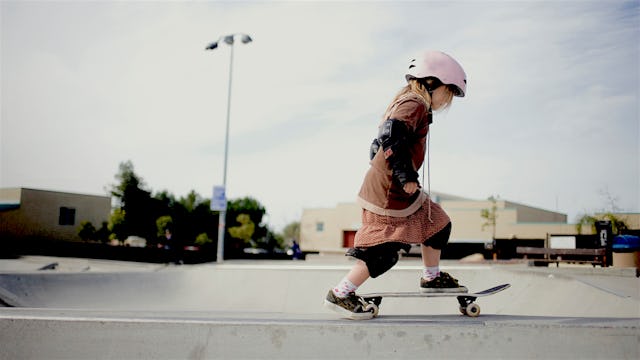Why Being A 'Carpenter Parent' Can Be Harmful To Kids

When it comes to parenting, we all tend to fall into one of two categories: carpenters or gardeners. Or so says Alison Gopnik in her book, The Gardener and the Carpenter.
According to Gopnik, a “carpenter” parent is very hands-on and provides lots of instruction. Like a carpenter building a house, the carpenter parent believes their actions—measuring and cutting and hammering and fixing—play a dominant role in shaping their child into the adult they will one day become.
RELATED: Gardening With Kids — Tips And Tricks To Getting Down In The Weeds
The “gardener” parent takes a more hands-off approach. We can’t force a plant to become a plant, to lean toward the sun, to unfurl its leaves, to grow flowers. But we can provide nutrient-rich soil and sufficient amounts of sunlight and water. Gardeners believe the same holds true for children. Provide a nourishing environment and they will become what they’re meant to be on their own.
Gopnik, who teaches psychology and philosophy at University of California, Berkley, says too many parents these days are carpenters. A better approach for raising happy, well-adjusted, independent kids is to parent more like the gardener. Parents need to step back and allow their children to acquire information and skills independently and forge their own paths.
Given the competitiveness of today’s world, the difficulty of getting into college and then the burden of paying off student loans with jobs from shrinking industries that barely pay living wages, it’s no wonder parents feel compelled to hover. We can tell ourselves all day long that we need to step back and let our kids learn on their own, but we see where this train is headed. We see the difference between the shiny American Dream of the Baby Boomers and the dull, tarnished American Dream Millennials now face.
The middle class is shrinking, our healthcare system is bullshit, and the job market is unbelievably competitive. In a world that looks more and more dystopian every day, we want to ensure our kids have the skills to survive. We want to give our kids the skills to survive.
And yet, according to Gopnik, taking control of every detail of our kids’ learning is not the answer to our fears. Parents often have hopes for what they want their child to be, and without meaning to, they hover and pressure and manipulate. This creates needless anxiety for our kids and doesn’t even necessarily lead to a better outcome. “We’re so concerned about how these children are going to turn out that we’re unwilling to give them the autonomy that they need to be able to take risks and go out and explore the world,” Gopnik says.
I was guilty of this with my firstborn. My husband and I—trying to be perfect parents, and more than that, trying to mold him into the vision we’d created for ourselves—signed our son up for soccer and violin. Well, he hated both of them. He enjoys soccer a bit more now that he’s older, though his favorite sport to play is basketball, a sport neither I or his father plays. He discovered it at school. I pushed violin on him because I have a degree in music performance and thought learning the violin would turn him into some kind of genius. Eh, that probably only works if the kid actually likes the violin.
We eventually woke up from our parenting coma and noticed our son loved listening to rock music. So, we bought him a toy guitar. When he started picking out recognizable tunes on that, we bought him a real guitar and signed him up for lessons. He’s been playing for 5 years now and he’s a badass guitarist—his choice.
Too often, in our sincerest efforts to help, we parents often only end up getting in our kids’ way. Gopnik points out that the best thing we can give our kids is autonomy with support. Give them the opportunity to explore many new things so they can discover on their own what sparks a fire inside them. And when they do find that thing, support it.
And we need to stop instructing and lecturing so much. Studies show that children, especially young children, tend to learn better the less adults interfere. Give a complicated toy to a 4-year-old and they will examine it and figure out on their own all the different things it can do. Give them instructions for how to use the toy, and they tend to play with the toy only in the way they’ve been instructed. Too much instruction literally hinders a child’s learning. And it’s important to let our kids fail sometimes too. As much as we want to spare them the pain that comes with struggling, this is often when they learn the most.
Even adults benefit from freedom to explore and express creativity. Google is notorious for giving employees days off to do whatever they want, Pixar has actual playhouses on site, and Facebook is known for giving its employees incredible workspace flexibility. And these are some of the most successful and innovative companies that exist.
Basically, if we want our kids to be successful and happy, we parents need to slow our roll, chill the eff out, and back off. Let our kids show us what they are capable of.
This article was originally published on